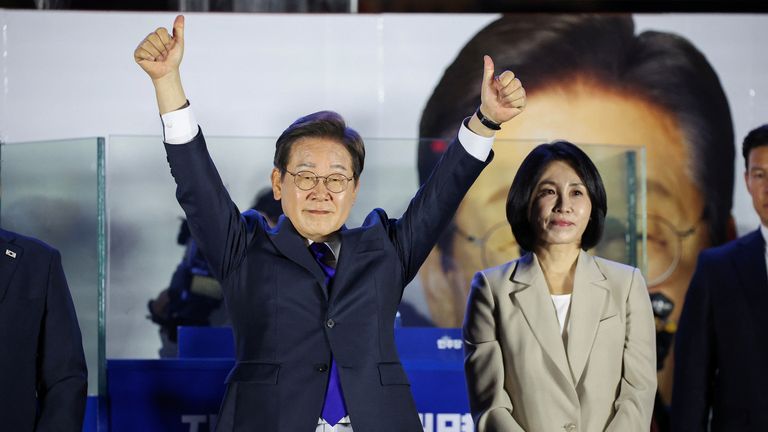South Korea’s newly elected President, Lee Jae-myung of the Democratic Party, has vowed to implement economic reforms that prioritise supporting lower-income households and small businesses, while promoting growth in the country’s digital asset sector.
Lee made the pledge shortly after winning the June 3 snap election, securing 49.42 percent of total votes cast.
Lee’s crypto plan targets ETFs and Stablecoins
The president’s crypto agenda includes legalising spot Bitcoin ETFs, approving Korean won-pegged stablecoins, and finalising comprehensive digital asset regulations.
Echoing the market surge after Donald Trump’s 2024 U.S. presidential win, Lee’s victory on Tuesday sent the local crypto market into a blitz with bitcoin soaring to 149,000 won ($108,480), on major exchanges such as Upbit and Bithumb.
This surge marks a turning point for South Korea’s crypto sector, which boasts 9.7 million exchange users—nearly 20 percent of the population.
His key promises also extend to the introduction of spot cryptocurrency ETFs, a move financial authorities have cautiously considered since the success of U.S. Bitcoin ETFs.
Currently, South Korea bans local issuance and trading of crypto ETFs, but Lee’s administration aims to lift these restrictions to align with global markets.
Additionally, Lee plans to establish a Korean won-backed stablecoin market, arguing that it will prevent domestic capital outflows. In a policy discussion last month, he stated:
“We need to establish a won-backed stablecoin market to prevent national wealth from leaking overseas.”
This initiative could position the nation as a leader in stablecoin innovation, reducing reliance on USD-pegged alternatives like USDT or USDC.
Beyond ETFs and stablecoins, his administration will prioritise finalising South Korea’s two-part digital asset regulatory framework. The second legislation, expected soon, will focus on stablecoin regulations and exchange transparency mandates to address concerns over fraud and market manipulation.
He plans to minimise regulations in blockchain special growth zones to foster innovation. This approach mirrors pro-business strategies seen in crypto hubs like Singapore and Dubai, where relaxed regulations have attracted major blockchain firms.
South Korea’s economic revival and global implications
Lee’s presidency comes at a critical time for South Korea, which faces rising living costs, trade tensions with the U.S., and regional geopolitical instability.
His broader economic plan, which extends beyond cryptocurrency, also includes boosting artificial intelligence (AI) and defence investments to reform the prosecution system and even propose a 4.5-day workweek.
Lastly, the president promised to signal a new era for South Korea’s crypto industry, as it’s said to promote ETFs, stablecoins, and regulatory clarity.
















